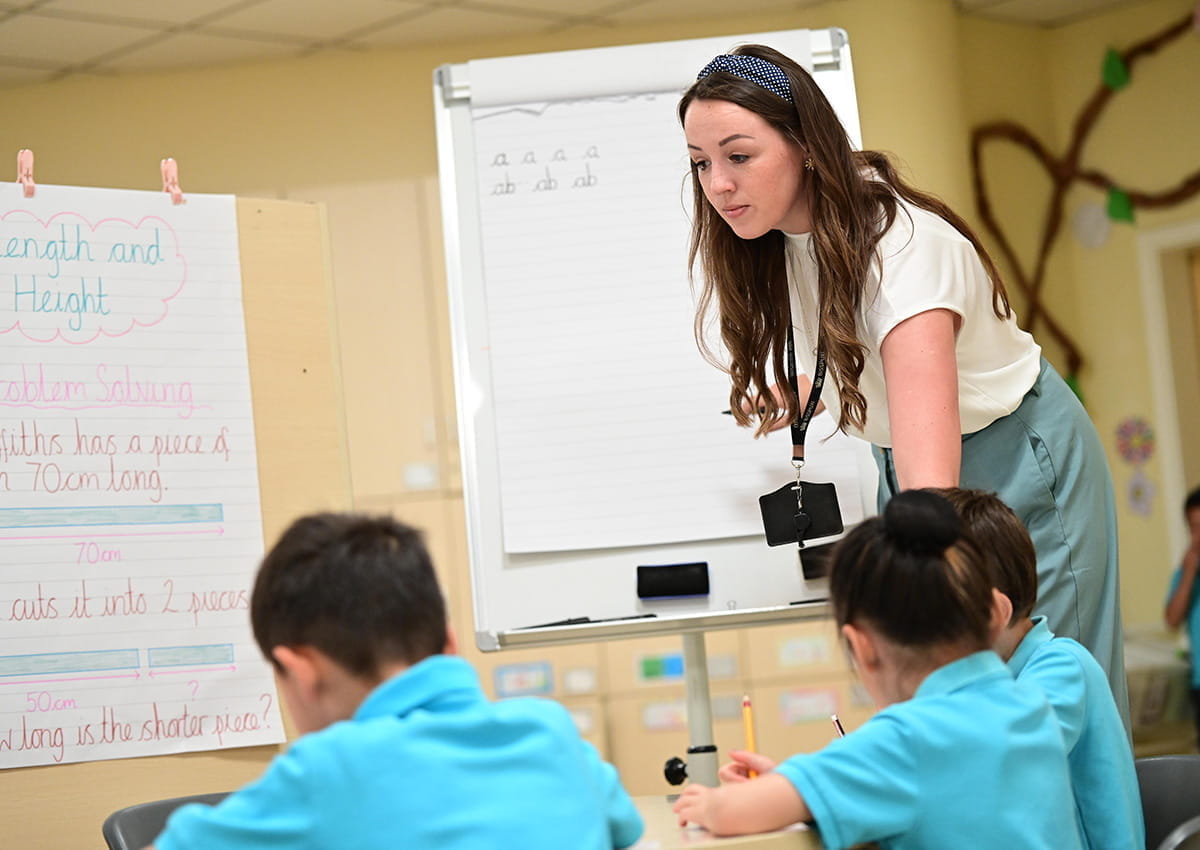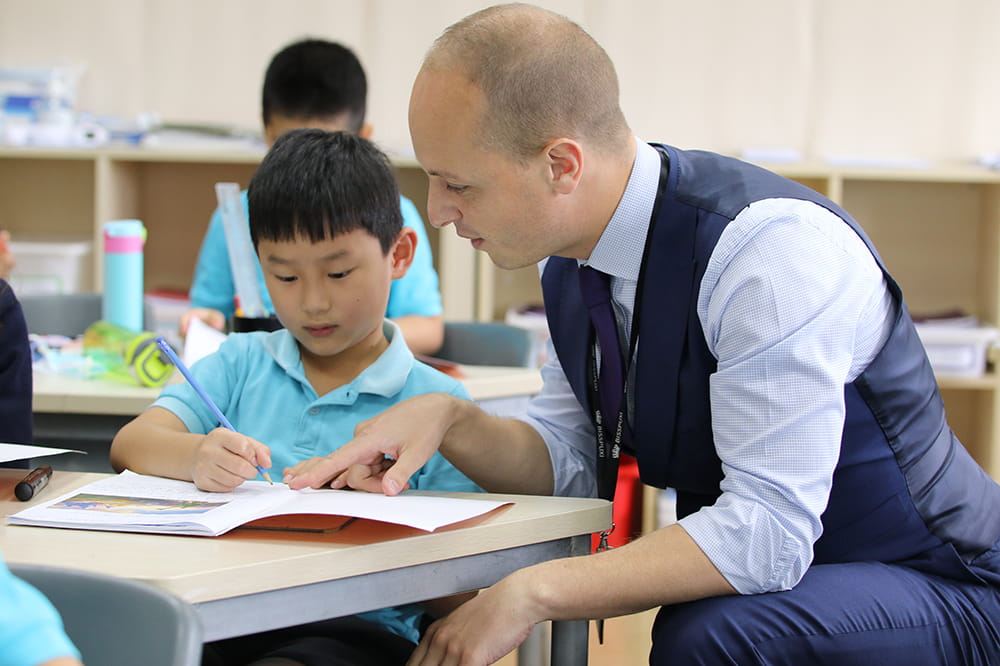We use cookies to improve your online experiences. To learn more and choose your cookies options, please refer to our cookie policy.
Open Days
Register for our Open Day!


Mathematics is an essential subject that provides a foundation for many other subjects and is crucial for success in everyday life. As such, it is important for schools to provide a strong Maths education for their students. One way that BISS is doing this is through the implementation of the White Rose Maths scheme. Recently, James Callan, our Maths Leader, held a Maths parent workshop to inform parents about the White Rose scheme and how it is implemented across different year groups.
The White Rose Maths scheme is a comprehensive programme of study that focuses on developing children's fluency, reasoning and problem-solving skills. It is designed to be used alongside the National Curriculum, providing a clear and consistent approach to teaching maths. The scheme uses a Concrete, Pictorial, Abstract (CPA) method to support and deepen children's understanding in lessons. This approach allows children to move from the concrete stage (where they use physical objects to solve problems) to the pictorial stage (where they use pictures to represent objects) and then to the abstract stage (where they use mathematical symbols and language).During the parent workshop, examples of work from children's books were shared to show how the CPA method is used to support children's learning across different year groups. For example, in Year 1, children might use counters or cubes to represent numbers and learn to count in multiples of 2, 5 and 10. In Year 3, children might use bar models to represent fractions and learn to convert between fractions, decimals and percentages. In Year 6, children might use algebraic symbols to represent unknown numbers and learn to solve equations with one or two variables.The CPA method is used in Maths lessons to support children's fluency, reasoning and problem-solving skills. Fluency involves being able to carry out mathematical procedures accurately and quickly. Reasoning involves being able to explain and justify mathematical concepts and solutions. Problem-solving involves being able to apply mathematical knowledge and skills to real-life situations. The CPA method allows children to develop these skills in a logical and sequential way.
In Maths lessons, the order in which we use the CPA method depends on the learning objective. For example, when introducing a new concept, we might begin with a concrete activity to help children understand the concept in a practical way. Then, we might move on to a pictorial activity to help children visualise the concept. Finally, we might move on to an abstract activity to help children understand the concept in mathematical language and symbols.
During the parent workshop, resources and ideas were shared about how parents can help their children at home with Maths. The parent workbooks provide an insight into the White Rose scheme and provide extra activities at home. ‘Maths with Michael’ videos were recommended as a resource for parents to use with their children at home. Useful websites, which provides free resources and activities for children of all ages, were also shared.